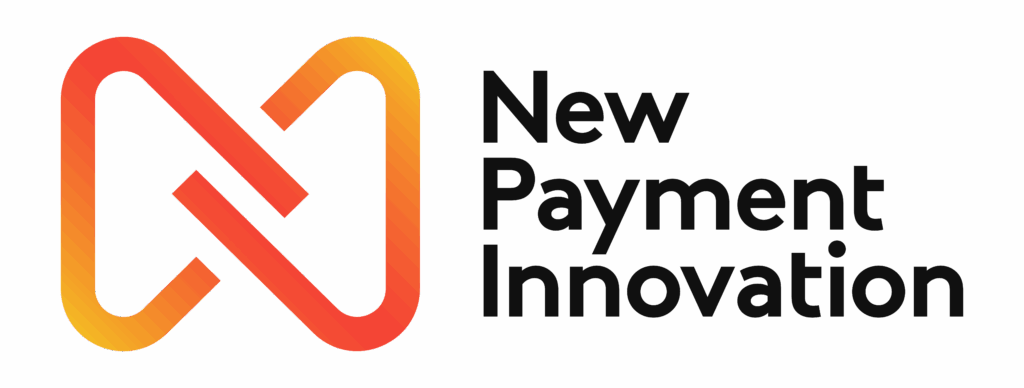About 35% of small and medium enterprises (SMEs) consider high transaction fees and lengthy times associated with card payments as their main restraint. For UK small businesses, payment processing fees represent a significant operating expense that directly impacts profitability and growth potential.
Understanding the complex landscape of payment processing fees and implementing cost-reduction strategies can save thousands of pounds annually while maintaining excellent customer service. With the UK cards and payments market projected to reach £1,292.04 billion by 2033, optimizing your payment processing costs has never been more critical for business success.
This comprehensive guide explains UK payment processing fees, compares provider pricing structures, and provides actionable strategies to minimize costs while maximizing payment acceptance capabilities.
Understanding UK Payment Processing Fees
The Payment Processing Ecosystem
There are three organisations involved in every card transaction, each taking their own fee:
- Card Schemes (Visa, Mastercard): Set interchange rates and scheme fees
- Issuing Banks: Banks that issue cards to consumers
- Acquiring Banks/Processors: Process merchant transactions
Understanding this ecosystem helps explain why fees vary and where costs originate.
Types of Payment Processing Fees
Interchange Fees The largest component of processing costs, interchange fees are set by card schemes and paid to issuing banks. In the UK:
- Debit card interchange: 0.2% for consumer cards, 0.3% for business cards
- Credit card interchange: 0.3% for consumer cards, 0.8% for business cards
- These rates are regulated by the European Union and apply in the UK
Scheme Fees Card schemes (Visa, Mastercard) charge additional fees for:
- Network access and maintenance
- Fraud monitoring and prevention
- Currency conversion (for international transactions)
- Premium card services
Processor/Acquirer Fees Payment processors add their margin through:
- Processing markup over interchange
- Monthly service fees
- Setup and maintenance charges
- Additional service fees
Payment Method Variations
Different payment methods incur varying costs:
Debit Cards
- Lowest processing costs (typically 0.3-1.5%)
- Most common payment method in UK
- Immediate funds transfer
- Lower risk profile
Credit Cards
- Higher processing costs (typically 1.5-3%)
- Longer settlement times
- Higher risk due to chargebacks
- Premium cards incur higher fees
Contactless Payments
- Same fees as equivalent card transactions
- Faster processing times
- Enhanced security features
- Growing market share
Mobile Wallets
- Similar fees to underlying card method
- Enhanced fraud protection
- Improved customer experience
- Integration capabilities
Pricing Models Explained
Interchange Plus Pricing
Interchange plus pricing shows transparent breakdown:
- Interchange rate (set by card schemes)
- Plus fixed processor markup
- Separate scheme fees
- Most transparent pricing model
Example: 0.3% interchange + 0.2% processor fee + 5p transaction fee
Blended/Flat Rate Pricing
Single rate for all transactions:
- Simple pricing structure
- Easier to understand and predict
- May be higher for low-risk transactions
- Popular with small businesses
Example: 1.75% for all card transactions
Tiered Pricing
Different rates for transaction categories:
- Qualified rates (lowest fees)
- Mid-qualified rates
- Non-qualified rates (highest fees)
- Less transparent than interchange plus
- Can result in higher effective rates
Subscription/Membership Pricing
Monthly fee plus reduced transaction rates:
- Lower per-transaction costs
- Fixed monthly expense
- Better for high-volume businesses
- Requires minimum transaction volumes
Cost Comparison by Provider Type
Traditional Banks
High street banks typically offer:
- Higher processing rates (2-4%)
- Established reputation and stability
- Comprehensive merchant services
- Personal relationship management
- Complex pricing structures
Independent Payment Processors
Specialist processors provide:
- Competitive rates (1.5-2.5%)
- Industry expertise
- Flexible contract terms
- Advanced technology platforms
- Customized solutions
Aggregator/PSP Services
Payment service providers offer:
- Simple flat-rate pricing (1.69-1.75%)
- Quick setup and approval
- No monthly fees
- Limited customization
- Suitable for smaller businesses
Direct Processor Relationships
Large businesses may access:
- Lowest available rates (0.5-1.5%)
- Direct scheme relationships
- Volume discounts
- Complex setup requirements
- Minimum volume commitments
Strategies to Reduce Payment Processing Costs
- Understand Your Transaction Profile
Analyze your payment data to identify:
- Average transaction values
- Transaction volume patterns
- Card type distribution (debit vs credit)
- Peak processing times
- Customer payment preferences
This analysis helps identify the most cost-effective pricing model for your business.
- Choose the Right Pricing Model
For Low Volume Businesses (Under £5,000 monthly)
- Flat-rate providers (Square, SumUp, Zettle)
- No monthly fees
- Simple pricing structure
- Quick setup and implementation
For Medium Volume Businesses (£5,000-£50,000 monthly)
- Interchange plus pricing
- Negotiate processor markup
- Consider monthly fees vs transaction savings
- Evaluate additional service costs
For High Volume Businesses (Over £50,000 monthly)
- Direct processor relationships
- Custom pricing negotiations
- Volume-based discounts
- Comprehensive service packages
- Optimize Transaction Processing
Encourage Lower-Cost Payment Methods
- Promote debit card usage over credit cards
- Offer incentives for contactless payments
- Educate customers on cost-effective options
- Implement surcharging where legally permitted
Batch Processing Optimization
- Process transactions at optimal times
- Minimize cross-border transaction fees
- Avoid weekend and holiday processing
- Implement automatic settlement schedules
- Negotiate Better Terms
Preparation for Negotiations
- Compile 6-12 months of processing statements
- Document transaction volumes and values
- Research competitor pricing
- Prepare to switch providers if necessary
Negotiation Strategies
- Request interchange plus pricing
- Negotiate processor markup reduction
- Eliminate unnecessary fees
- Secure rate lock guarantees
- Regular Cost Reviews
Monthly Statement Analysis
- Review effective processing rates
- Identify fee increases or changes
- Monitor transaction patterns
- Compare against negotiated rates
Annual Provider Evaluation
- Compare total cost of ownership
- Evaluate service quality and support
- Assess technology and feature improvements
- Consider switching costs vs savings
Fee Optimization by Business Type
Retail Businesses
Retail operations can reduce costs through:
- Encouraging contactless and debit card payments
- Implementing minimum transaction amounts for cards
- Using integrated POS systems to reduce processing errors
- Negotiating volume discounts for high transaction counts
Hospitality and Restaurants
Food service businesses benefit from:
- Table-side payment processing to encourage tips
- Integration with delivery platform payments
- Staff training on payment method costs
- Gratuity handling optimization
E-commerce and Online Businesses
Online businesses can minimize fees by:
- Optimizing payment gateway selection
- Implementing address verification systems
- Reducing chargeback rates through better policies
- Using tokenization for repeat customers
Professional Services
Service businesses should consider:
- Invoice payment optimization
- Recurring payment discounts
- Mobile payment solutions for on-site services
- Client education on preferred payment methods
Hidden Fees to Watch For
Common Additional Charges
Be aware of these potentially costly fees:
Monthly Minimum Fees
- Charges when transaction volume falls below threshold
- Can significantly impact low-volume months
- Often negotiable or waivable
PCI Compliance Fees
- Monthly charges for security compliance
- Should be included in processing rates
- Avoid separate compliance charges
Statement and Reporting Fees
- Charges for detailed transaction reporting
- Online access should be included
- Negotiate removal of paper statement fees
Early Termination Fees
- Penalties for ending contracts early
- Can range from £100-500+
- Factor into total cost calculations
Chargeback and Dispute Fees
- Charges for transaction disputes
- Typically £15-25 per chargeback
- Focus on prevention strategies
Technology Solutions for Cost Reduction
Payment Gateway Optimization
Modern payment gateways offer:
- Dynamic routing to lowest-cost processors
- Intelligent payment method selection
- Real-time fee monitoring
- Automated cost optimization
Data Analytics and Reporting
Advanced analytics provide:
- Transaction cost analysis
- Payment method performance tracking
- Customer behavior insights
- Cost optimization recommendations
Fraud Prevention Tools
Reducing fraud saves money through:
- Lower chargeback rates and fees
- Improved approval rates
- Enhanced customer trust
- Reduced manual review costs
Regulatory Changes and Impact
Open Banking Implementation
Open Banking creates opportunities for:
- Account-to-account payments
- Reduced card processing fees
- Enhanced customer authentication
- New payment method innovation
Payment Services Directive (PSD2)
PSD2 impacts include:
- Strong customer authentication requirements
- Enhanced fraud protection
- Increased payment innovation
- Potential fee structure changes
Future Regulatory Developments
Monitor upcoming changes in:
- Interchange fee regulations
- Consumer protection requirements
- Digital payment standards
- Cross-border payment rules
Case Studies: Successful Cost Reduction
Small Retail Business
A local gift shop reduced processing costs by 30% through:
- Switching from bank to flat-rate provider
- Encouraging contactless payments
- Implementing minimum card transaction amounts
- Eliminating monthly statement fees
Restaurant Chain
A small restaurant group achieved 25% savings by:
- Negotiating volume discounts across locations
- Implementing table-side payment systems
- Optimizing tip handling procedures
- Reducing chargeback rates through better policies
Professional Services Firm
A consulting business cut payment costs by 40% through:
- Moving to interchange plus pricing
- Implementing online invoicing with card payments
- Setting up recurring payment discounts
- Educating clients on cost-effective payment methods
Implementation Timeline
Month 1: Analysis and Planning
- Review current processing statements
- Calculate total cost of ownership
- Research alternative providers
- Prepare negotiation strategy
Month 2: Provider Evaluation
- Request quotes from multiple providers
- Compare pricing models and features
- Evaluate customer support quality
- Check references and reviews
Month 3: Implementation
- Complete application and approval process
- Install new payment equipment
- Train staff on new procedures
- Test systems and processes
Ongoing: Monitoring and Optimization
- Monthly cost analysis
- Quarterly provider reviews
- Annual contract renegotiation
- Continuous optimization strategies
Best Practices for Long-term Success
Regular Market Research
Stay informed about:
- New provider offerings
- Industry rate changes
- Technology innovations
- Regulatory updates
Relationship Management
Maintain good provider relationships through:
- Regular communication
- Prompt issue reporting
- Contract compliance
- Professional interactions
Staff Training and Education
Ensure staff understand:
- Payment method costs
- Customer guidance techniques
- System operation procedures
- Fraud prevention measures
Conclusion
Effectively managing payment processing fees requires ongoing attention and strategic optimization. UK small businesses can achieve significant cost savings through careful provider selection, pricing model optimization, and regular cost reviews.
The key to success lies in understanding your specific transaction patterns, negotiating appropriate pricing structures, and continuously monitoring costs against market alternatives. While payment processing fees are an unavoidable cost of doing business, they can be minimized through informed decision-making and proactive management.
Remember that the cheapest option isn’t always the best value. Consider the total cost of ownership, including customer support quality, technology capabilities, and service reliability. The right payment processing solution balances cost effectiveness with business growth enablement.
Ready to optimize your payment processing costs? Contact our UK specialists today for a comprehensive cost analysis and personalized recommendations tailored to your specific business requirements.







